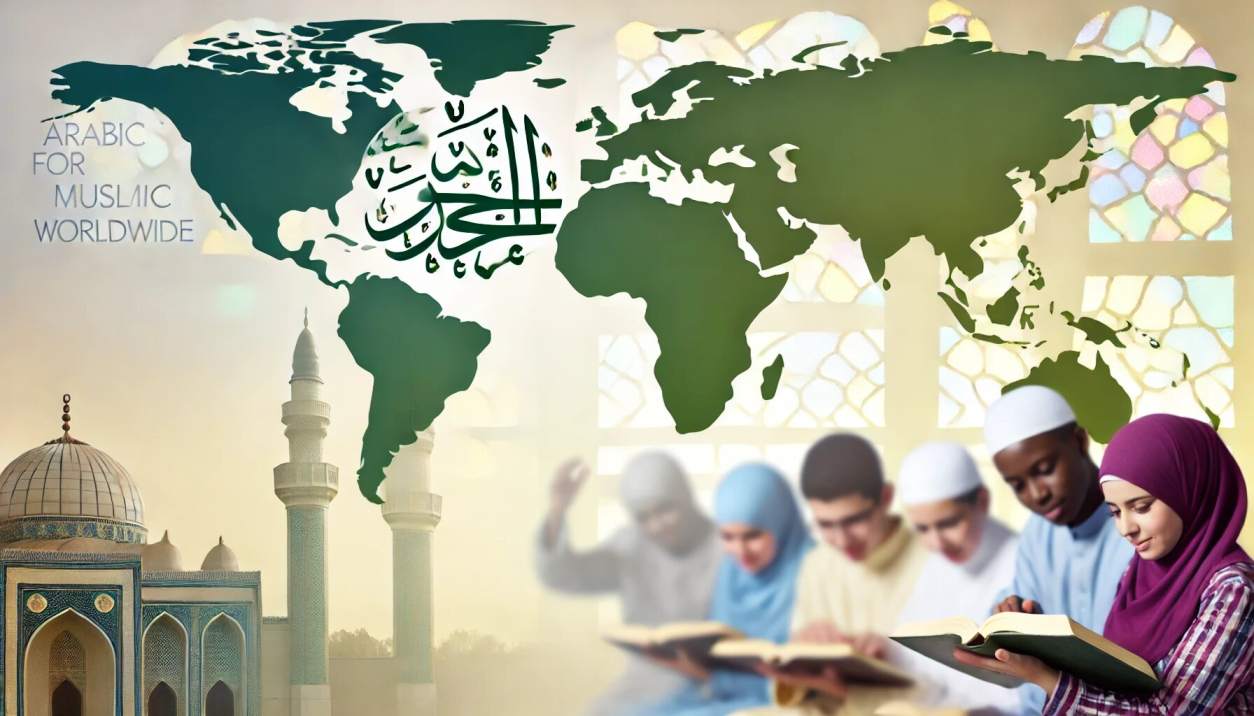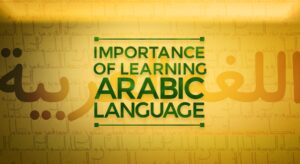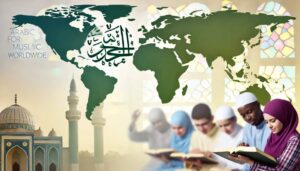Why Learning Arabic Is Important for Muslims
Table of Contents
ToggleFor Muslims in non-Muslim countries, learning Arabic is very important. Arabic is more than just a language; it’s the tongue of the Quran. It’s key to Islamic faith and heritage.
By learning Arabic, Muslims can grow closer to their faith. They can also connect more deeply with Islamic traditions. This helps build a stronger sense of community.
Mishkah Academy knows how crucial Arabic is for Muslims worldwide. They offer top-notch Arabic courses online. This helps people understand the spiritual and cultural value of Arabic.
Key Takeaways
- Arabic is the language of the Quran, the holy scripture of Islam, and a critical component of Islamic faith and heritage.
- Learning Arabic strengthens religious identity, fosters cultural connections, and preserves Islamic traditions for Muslims in non-Muslim countries.
- Proficiency in Arabic enables Muslims to deepen their understanding of Islamic texts and enhance their prayer experience.
- Mishkah Academy provides online Arabic language courses to help Muslims in the United States and other non-Muslim countries unlock the benefits of Arabic language learning.
- Acquiring Arabic language skills empowers Muslims to better communicate with Arabic-speaking communities and engage with the global Islamic community.
Importance of Learning Arabic for Muslims in Non-Muslim Countries
For Muslims in non-Muslim countries, learning Arabic is more than just a language. It’s a key to their faith, used for the Quran and daily prayers. Knowing Arabic helps Muslims connect deeper with their faith and feel part of a community.
Learning Arabic lets Muslims understand the Quran better. This means they can get more spiritual guidance from it. It also helps them stay true to their faith.
Arabic also makes Islamic rituals more meaningful. By using Arabic in prayers, Muslims connect with their worship on a deeper level. This makes their spiritual experiences more powerful.
In a world where Muslims are spread across diverse regions, the importance of learning Arabic transcends linguistic boundaries. For Muslims living in non-Muslim countries, learning Arabic is more than a language acquisition; it is a journey of faith, identity, and cultural preservation. Below, we explore the profound reasons why learning Arabic is essential for Muslims in non-Muslim countries and how Mishkah Academy offers a gateway to mastering this sacred language.
1. Understanding the Quran and Islamic Texts
The Quran, Islam’s holy book, is revealed in Arabic. While translations are helpful, they often lose the depth, nuance, and beauty of the original text. Learning Arabic enables Muslims to:
- Understand the Quran in its authentic form.
- Deepen their connection with Allah through prayers (Salah) recited in Arabic.
- Grasp Hadith (sayings of the Prophet Muhammad, peace be upon him) and Islamic jurisprudence directly.
2. Strengthening Cultural and Religious Identity
In non-Muslim countries, preserving Islamic values and identity can be challenging. Learning Arabic empowers Muslims to:
- Maintain a strong connection to their religious and cultural roots.
- Engage in meaningful conversations about Islam with their children and community.
- Foster a sense of pride in their Islamic heritage.
3. Enhancing Spiritual Practices
Arabic is integral to various acts of worship, including:
- Daily Prayers (Salah): Reciting verses from the Quran with comprehension enhances focus and devotion.
- Dua (Supplication): Understanding and personalizing supplications in Arabic makes them more heartfelt.
- Tajweed (Proper Recitation): Learning the rules of pronunciation improves the beauty and accuracy of Quran recitation.
4. Bridging Communication Gaps in Muslim Communities
Muslim communities worldwide use Arabic as a lingua franca. By learning Arabic, Muslims in non-Muslim countries can:
- Communicate effectively with fellow Muslims from different linguistic backgrounds.
- Participate in Islamic events, lectures, and Hajj/Umrah rituals without language barriers.
5. Accessing Rich Islamic Knowledge
Many classical Islamic texts, such as Tafsir (Quranic exegesis), Fiqh (Islamic jurisprudence), and Seerah (Prophetic biography), are preserved in Arabic. Proficiency in Arabic opens the door to:
- Authentic Islamic education.
- Advanced Islamic studies and scholarly pursuits.
| Benefit | Description |
|---|---|
| Quran Comprehension | Ability to engage with the Quranic text in its original Arabic form, leading to a deeper understanding of the divine message. |
| Ritual Observance | Improved execution of essential Islamic practices, such as daily prayers, through mastery of the Arabic language. |
| Cultural Preservation | Maintenance of the rich cultural and historical traditions associated with the Arabic language within the Muslim community. |
| Community Engagement | Enhanced communication and connection with fellow Muslims, particularly those in Arabic-speaking regions. |
Learning Arabic also helps keep cultural and historical traditions alive. This strengthens the sense of community and belonging. It makes Muslims feel more connected to their faith and others worldwide.
In short, learning Arabic is crucial for Muslims in non-Muslim countries. It deepens their spiritual connection, improves their religious practices, and strengthens their cultural and community ties. Mishkah Academy offers a great online platform to learn Arabic and explore Islamic traditions.
Learn Arabic Online at Mishkah Academy
Mishkah Academy provides an unparalleled opportunity for Muslims in non-Muslim countries to learn Arabic effectively and conveniently. Here’s why Mishkah Academy is the perfect platform:
- Native Arab Tutors: Learn from experienced tutors who are experts in teaching Arabic as a second language.
- Flexible Schedules: Tailored lessons accommodate busy lifestyles and varying time zones.
- Customized Curriculum: Courses are designed to meet individual goals, from beginner to advanced levels.
- Interactive Learning: Engage with tutors through live sessions and interactive resources.
- Affordable Fees: Quality education at reasonable prices, ensuring accessibility for all.
👉 Take the First Step Today! Visit Mishkah Academy to explore various Arabic courses tailored for Muslims in non-Muslim countries. Book a Free Trial Lesson now to experience the transformative journey of learning Arabic.
For Muslims in non-Muslim countries, learning Arabic is not just a language skill—it is a spiritual investment. It deepens their understanding of Islam, strengthens their faith, and preserves their identity. Mishkah Academy is dedicated to making this journey accessible and enriching for every Muslim. Don’t wait—start learning Arabic today and unlock a world of spiritual and cultural treasures.
Great Benefits of Learning Arabic
For Muslims in non-Muslim countries, knowing the Quran in Arabic is very helpful. It lets them connect deeply with Islam’s teachings. They also get a richer spiritual journey.
Understanding Quranic Arabic means engaging with the sacred text on a deeper level. The Quran, given in Arabic, is God’s word. It’s best understood in its original language. Learning Arabic helps Muslims explore deeper meanings and contextual interpretations that might be lost in translation.
Directly engaging with Quranic Arabic also enhances one’s spiritual connection with the divine. The Quran’s beauty and elegance in Arabic can deeply move people. It lets them connect with the divine on a deeper level and understand their faith more intimately.
- Develop a deeper connection with the Quran and its teachings
- Explore the nuances and contextual interpretations of Quranic Arabic
- Experience a more meaningful and personal understanding of Islamic teachings
- Enhance one’s spiritual connection with the divine
- Gain a more intimate understanding of one’s faith
By embracing the study of Quranic Arabic, Muslims in non-Muslim countries can strengthen their religious identity, deepen their spiritual connection, and foster a stronger sense of community. This skill makes their faith journey more rewarding.
“The Quran is a book in which there is guidance and light, and whoever holds fast to it and acts in accordance with what is in it will be guided to the straight path.”
To start this journey, look into educational platforms like Mishkah Academy. They offer comprehensive online courses in Quranic Arabic and Islamic studies. These courses meet the needs of Muslims in diverse cultures.
| Benefit | Description |
|---|---|
| Deeper Connection with the Quran | Understanding Quranic Arabic allows for a more profound engagement with the sacred text, leading to a stronger spiritual bond. |
| Enhanced Spiritual Experience | The linguistic beauty and nuances of Quranic Arabic can evoke a profound emotional and spiritual response, deepening one’s connection with the divine. |
| Improved Understanding of Islamic Teachings | Direct engagement with the Quran in its original language enables a more comprehensive and contextual understanding of Islamic principles. |
| Strengthened Religious Identity | The ability to understand Quranic Arabic can contribute to a stronger sense of religious identity and belonging for Muslims living in non-Muslim countries. |
FAQ
Why is learning Arabic important for Muslims in non-Muslim countries?
Learning Arabic is key for Muslims in non-Muslim countries. It’s the language of the Quran, Islam’s central text. Knowing Arabic helps understand Islamic teachings better. It also makes daily prayers more meaningful. Learning Arabic keeps Islamic heritage alive. It strengthens a Muslim’s religious identity and cultural ties.
How does Arabic play a role in Islamic faith and practice?
Arabic is deeply connected to Islam. It’s the language of the Quran, Islam’s holy book. Knowing Quranic Arabic is vital for grasping Islamic teachings. Arabic is used in daily prayers and rituals. Being proficient in Arabic enriches the religious experience for Muslims.
What are the benefits of learning Arabic for Muslims in non-Muslim countries?
Learning Arabic has many benefits for Muslims in non-Muslim countries. It strengthens their religious identity and connection to Islam. Arabic proficiency helps preserve Islamic traditions. It also fosters deeper cultural connections within the global Muslim community. Understanding Arabic enriches the spiritual experience.
How can learning Arabic help reinforce religious identity for Muslims in non-Muslim countries?
Learning Arabic is crucial for Muslims in non-Muslim countries. It deepens their connection to the Quran and Islamic rituals. This strengthens their faith and cultural traditions. It helps preserve Islamic practices and builds stronger community ties. Arabic proficiency maintains a sense of religious belonging, even in a non-Muslim environment.
What are the benefits of understanding Quranic Arabic directly?
Understanding the Quran in Arabic offers significant benefits. It creates a deeper connection with divine teachings. This allows for a richer spiritual experience. It also deepens appreciation for the Islamic faith. This strengthens one’s religious identity and commitment.
How can Arabic proficiency enhance the everyday life of Muslims in non-Muslim countries?
Arabic proficiency has practical benefits for Muslims in non-Muslim countries. It enhances the prayer experience by making it more meaningful. Understanding Arabic improves comprehension of Islamic texts. It also facilitates communication with Arabic-speaking Muslim communities worldwide. These skills contribute to the religious, cultural, and social well-being of Muslims in non-Muslim environments.







